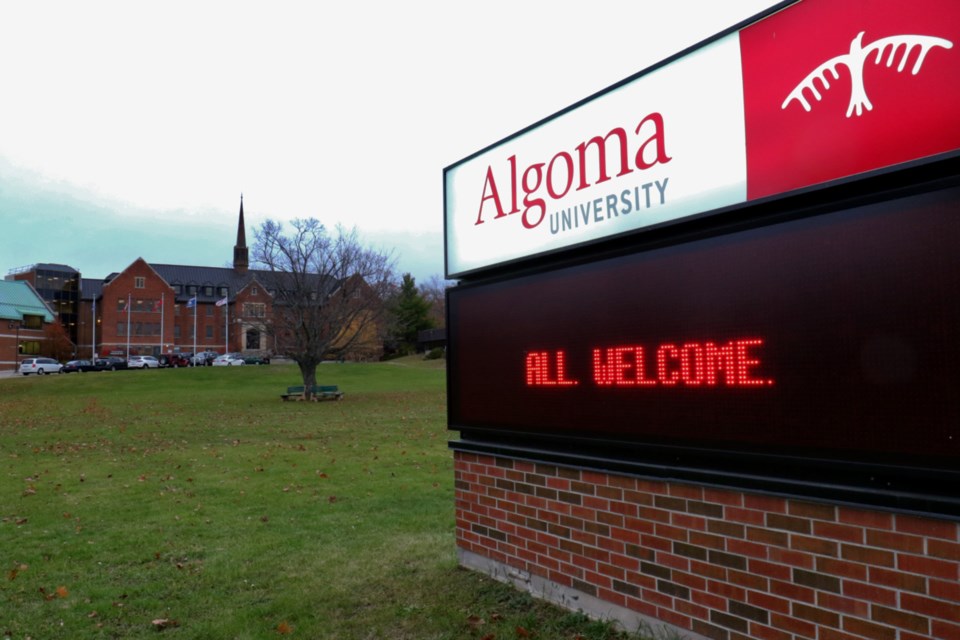There used to be a time when there wasn’t much questioning around claims of Indigenous identity made by faculty and staff at universities in Canada.
But for Dr. Paulette Steeves, an associate professor and a Tier II research chair of healing and reconciliation at Algoma University, Indigenous identity fraud is an issue that has been steadily gaining momentum in academic circles and beyond over the course of the past decade.
More recently, a report commissioned by the University of Saskatchewan suggests that the institution was unprepared for Indigenous identity fraud and uneducated on Indigenous people after a former health professor’s claims of being Métis were debunked by a CBC news article.
Another controversy was kick-started last summer after an anonymous report circulated alleging that staff and associates at Queen’s University were falsely claiming Indigenous identity.
“It can be a process, but we haven’t really worked out what our process will be for recognizing Indigenous people here at Algoma University when they apply for jobs or positions,” Steeves told SooToday during a telephone interview Tuesday.
Steeves, who is of Cree and Métis ancestry, believes that discussions around Indigenous identity fraud need to happen. But the educator and author warns that “not everyone comes with a status card or a link to a community.”
“I think we need to create processes where we ask people to self-identify in a way where they link themselves to their ancestors and their families, and to what they know of their communities,” she said.
She also cautions that Indigenous Peoples in Canada have “gone through a few hundred years of genocide and colonization, and a lot of people were dispossessed of their identities and lands.”
Steeves draws from personal experience to illustrate this: her mother’s children from a previous relationship were removed from her by the federal government in the 1940s because she was, in Steeves’ words, “Cree and Métis, and she wasn’t married at the time.”
Her mother never did find those children. When she married Steeves’ father and had more children, she was so traumatized that she wouldn’t allow her children to talk about their Indigenous ancestry.
“You have to be sensitive to people coming in,” said Steeves. “If they have an understanding they are Indigenous, they should be able to tell you some of their family history, they should have an understanding of their family history.”
There have been a lot of ongoing discussions at Algoma University about how to deal with identity fraud, and the one thing that Steeves always asks people to keep in mind are the Seven Grandfather Teachings.
“We don’t want to further colonize or traumatize people who are trying to reconnect to their identities, and we shouldn’t be making people feel ashamed to reconnect or to claim their identities. We really need to work to support that,” she said.
Steeves says universities in Canada need to be aware of the context surrounding claims of Indigenous identity.
“It is the responsibility of universities to become informed of the issues surrounding Indigenous identities, that means University administration and faculty must become informed of the history of colonization and how it has impacted and erased Indigenous identities, and how self-identifying as Indigenous has been abused by settler faculty to falsely claim Indigenous identity,” she said. “University administrations and faculty must also be informed of how discussions of false Indigenous self-identity may be weaponized as a tool of recolonization and erasure against disenfranchised Indigenous people.”
Only one side of the coin has been in the public eye when it comes to Indigenous identity fraud, Steeves says, and that side has been “really aggressive and really angry.”
She believes a discussion about the other side of that coin needs to happen. That's why Steeves would like to see universities in Canada equipped with the resources and support to help staff, students and faculty seek out their Indigenous identities, communities and relations.
“We’re coming back from hundreds of years of genocide and colonization. Hold space for people, help people, support them — find good ways to do this,” said Steeves. “We need more Indigenous knowledge and Indigenous educators in our education facilities, so we need to do everything we can to support them moving forward, and to continue the work of denouncing people who are not Indigenous but have claimed to be, but in a good way that follows the Seven Grandfather Teachings.”
